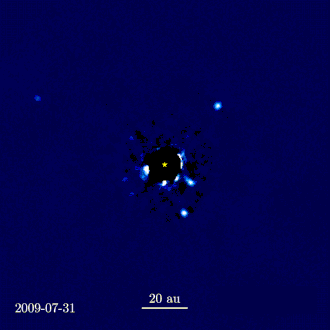
Exoplanet
Gematria Values
An exoplanet is a planet that orbits a star outside the Solar System, a type of planet not bound by the Sun's gravity. The first confirmation of the detection of an exoplanet was made in 1992, with the discovery of planets orbiting the pulsar PSR B1257+12. The term "exoplanet" is a portmanteau of "extrasolar planet" and is the accepted generic term for planets outside the Solar System. Other names for these objects include extrasolar planet, extra-solar planet, or simply exoplanet in languages such as Hebrew (פלנטה חוץ-שמשית, planeta khutz-shmshit), French (planète extrasolaire), German (Exoplanet), and Japanese (kōseikei wakusei, 外惑星). As of 1 January 2023, there are 5,240 confirmed exoplanets in 3,916 star systems, with 833 systems having more than one planet. The discovery of exoplanets has intensified interest in the search for extraterrestrial life. The nearest known exoplanet, Proxima Centauri b, is about 4.2 light-years (1.3 parsecs) from Earth and orbits the star Proxima Centauri, which is in the triple star system of Alpha Centauri, the nearest star system to the Sun.
Wikipedia Information
